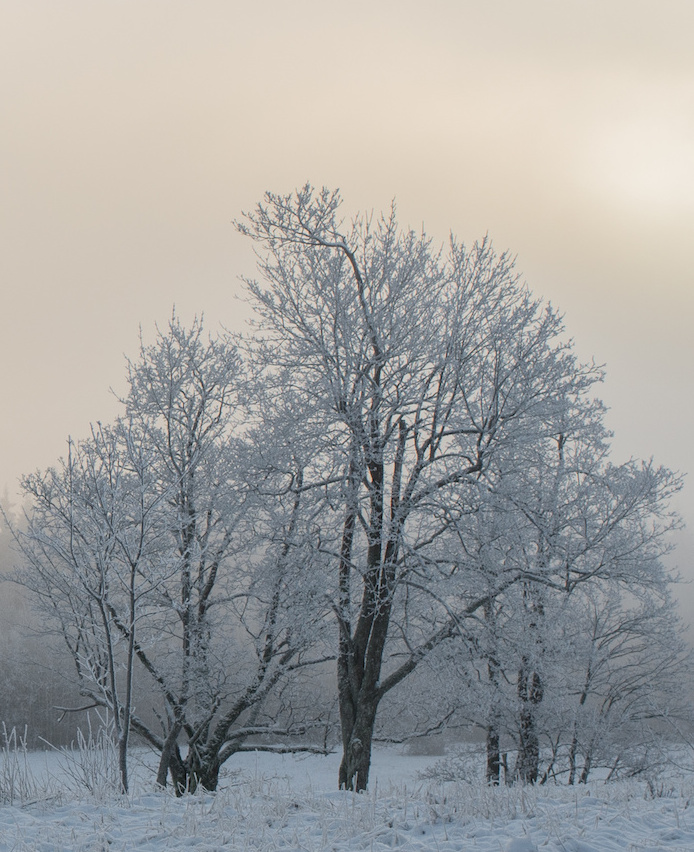From Cartwright Landscaping and STIHL
The late fall and early winter months  may not seem like an active time for your yard, but this is an ideal time to prepare your lawn for next year’s growing season. Here are five easy tips you can do to promote a healthy landscape during winter.
may not seem like an active time for your yard, but this is an ideal time to prepare your lawn for next year’s growing season. Here are five easy tips you can do to promote a healthy landscape during winter.
1. Trim Your Shrubs, Hedges and Trees
The dormant months are ideal for pruning and trimming perennial plants such as hostas, peonies, daisies and liriope. In addition to these plants, the vast majority of shrubs and hedges can be pruned during this time. If you’re thinking about pruning your trees, now is also a great time to prune both evergreen and deciduous trees.
To properly prune your trees, inspect the tree thoroughly and cut back only failing or decayed branches. Unless you are absolutely confident in your tree pruning capabilities, we recommend consulting a local, reliable, insured tree r
emoval service. Have them remove any dead trees or high branches prior to winter. Winter storms can bring high winds and heavy snow, which can turn dead limbs into falling hazards.
Visit Cartwright Landscaping’s website for specific instructions on how to best prune perennials, shrubs and trees (www.cartwrightlandscaping.com).
2. Remove Leaves and Debris
Throughout fall and into winter, it is very important to keep leaves off your lawn every few days. Leaves and debris that sit on the surface of your lawn prevent sunlight from reaching the grass blades underneath. Less sun means less growth, which in turn makes your grass look less lush and healthy. It can also result in a spotty looking lawn, with patches of dead or brown-looking grass.
3. Prep Planting Beds for Mulch
As spring approaches, get a head start on your planting beds in four easy steps. First, prune all shrubs, trees and perennials in your planting beds. Then, remove all leaves and other debris. After your beds are clear, define the edges of the
lanting beds by first hard edging, followed by a perimeter pass with a lawn mower along the edge, followed by line trimming for a clean, crisp finish. Finally, install your bulbs for spring. For ideal results, the bulbs should be planted in a well-draining, elevated planting bed.
4. Spread and Contour Mulch
5. Winter Care For Your Landscape, Residence & Equipment
In late fall, mow your lawn one last time to prevent matting under winter snow. Apply Wilt Pruf, an environmentally safe moisture sealant, to provide windburn and freezing protection for your gardenias, camellias, rhododendrons, laurels and other evergreen plantings. When winter does arrive, avoid walking on your frozen lawn as it causes bare spots that will not disappear until the grass comes out of winter dormancy.
Tie up your loosely branched evergreens and boxwoods to prevent snow damage. Do not use a broom or snow shovel to knock the snow off shrubs, as the limbs may be frozen and extremely fragile. Even the lightest poke at a shrub in such weather can result in substantial damage.
You should also make sure that all your water systems are properly winterized, including irrigation systems. Make certain all water spigots are turned off and covered. If you have leftover organic chemicals, store them away for winter in a place they cannot freeze.
It is also important to winterize your tools. Empty any gasoline remaining in your mower and other equipment engines and in fuel lines. Gas left in eng
ines can gum up fuel lines if the equipment is not used for a prolonged period of time. Maintain your tools by sharpening shovels, spades, hoes and pruners; rub down wood handles with linseed oil and wipe metal blades with an oily cloth to help prevent rusting.
Prepare your home for winter by cleaning out the gutters and downspouts once the leaves from the trees have all fallen. If you have a garden, fasten climbing roses to help prevent wind damage.
Provide protection for your tender or early flowering plants like rhododendrons, camellias, azaleas and daphne by staking around, then covering them with burlap if a severe cold spell is forecasted.